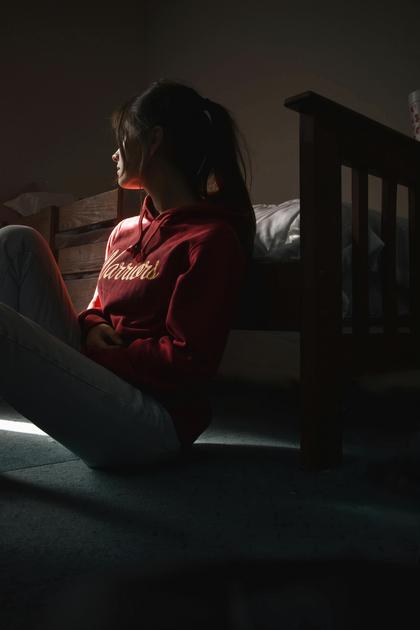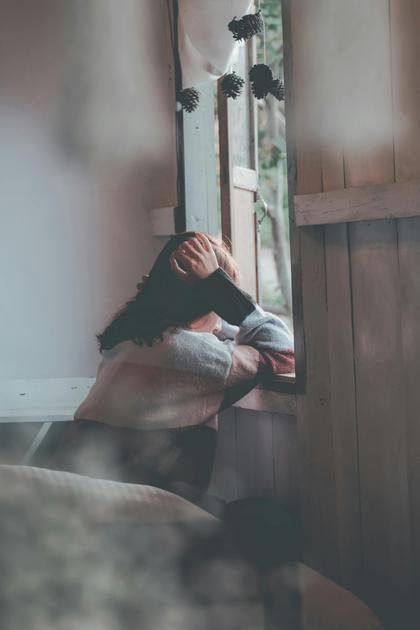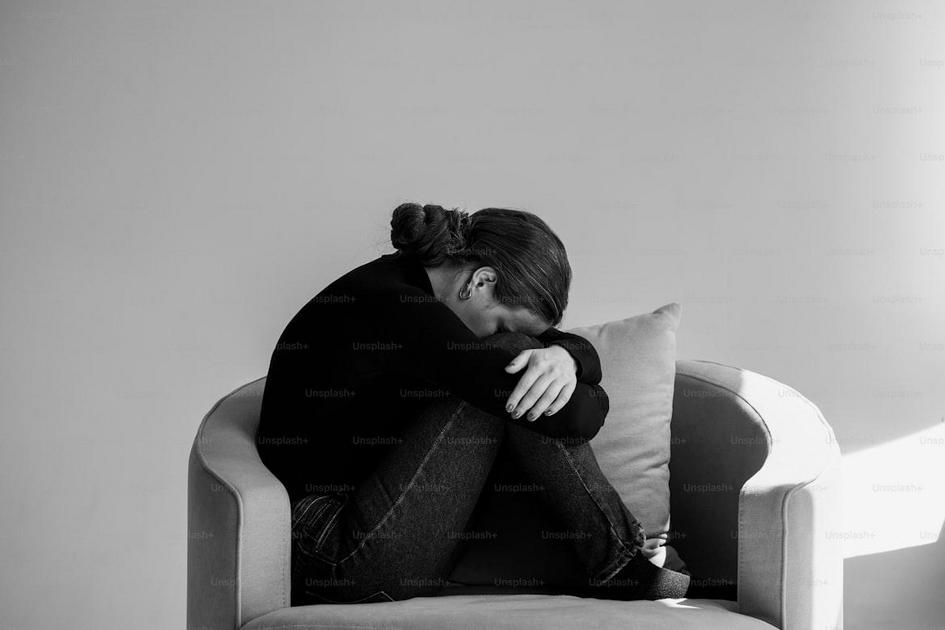Women-Anxiety.com
Understanding and Overcoming Anxiety in Women Over 30
Empowering women with knowledge, resources, and support for managing anxiety and reclaiming emotional wellbeing.
About Anxiety in Women

Anxiety is more than just occasional worry or stress—it’s a persistent feeling of apprehension that can significantly impact daily life. For women over 30, anxiety often manifests differently than in other demographics, with unique triggers and presentations.
Research shows that women are nearly twice as likely as men to experience anxiety disorders. This disparity becomes particularly pronounced during our 30s and 40s, when many women are navigating complex responsibilities including careers, relationships, parenting, and caring for aging parents simultaneously.
The transition into our 30s often brings increased responsibilities and life changes that can contribute to anxiety in women. Many women in this age group report feeling the pressure of “having it all” while struggling with perfectionism, societal expectations, and hormonal changes that begin in the perimenopausal years.
Understanding that anxiety in women over 30 is a common experience—not a personal failing—is the first step toward effective management. By recognizing the unique ways anxiety manifests in our lives, we can develop targeted strategies that address both the psychological and physiological aspects of this condition.
Hormones & Anxiety Connection
The relationship between hormones and anxiety in women is complex and significant. Fluctuations in key hormones throughout a woman’s life cycle can dramatically influence mood, stress response, and anxiety levels.
Estrogen and Progesterone
Estrogen has a generally calming effect on the brain, enhancing serotonin production and reception. Progesterone, when broken down, creates metabolites that act on GABA receptors (the same receptors targeted by anti-anxiety medications like benzodiazepines). As women enter their late 30s and 40s, the natural decline and fluctuation of these hormones during perimenopause can disrupt this delicate balance, leading to increased anxiety.
Cortisol and Stress Response
Cortisol, our primary stress hormone, interacts differently with female hormones. Women often experience a more pronounced cortisol response to stress compared to men. Chronic stress can lead to dysregulation of the HPA axis (hypothalamic-pituitary-adrenal axis), creating a vicious cycle where anxiety leads to more stress, which in turn exacerbates anxiety.
Thyroid Function
Thyroid disorders, which become more common as women age, can mimic or exacerbate anxiety symptoms. Both hyperthyroidism and hypothyroidism can contribute to feelings of anxiety, nervousness, and emotional instability.


Understanding these hormonal connections helps explain why traditional anxiety management approaches sometimes fall short for women. A comprehensive approach to anxiety in women must consider these biological factors alongside psychological strategies.
Common Symptoms of Anxiety in Women
Anxiety manifests in various ways, and women often experience both physical and emotional symptoms. Recognizing these signs is crucial for early intervention and effective management.
Physical Symptoms
- Racing heart or palpitations
- Shortness of breath or feeling of suffocation
- Muscle tension, especially in neck and shoulders
- Gastrointestinal issues (IBS symptoms, nausea)
- Sleep disturbances and fatigue
- Changes in appetite (increase or decrease)
- Hot flashes or temperature dysregulation
Emotional and Cognitive Symptoms
- Persistent worry that feels difficult to control
- Feeling keyed up, on edge, or restless
- Irritability and mood swings
- Difficulty concentrating or mind going blank
- Catastrophic thinking patterns
- Feeling overwhelmed by everyday tasks
- Heightened sensitivity to criticism or rejection
Behavioral Symptoms
- Avoidance of situations that trigger anxiety
- Procrastination on important tasks
- Seeking excessive reassurance from others
- Overpreparing or perfectionist tendencies
- Increased use of substances like alcohol or comfort foods
Many women in their 30s and 40s mistakenly attribute these symptoms solely to stress or aging, without recognizing the underlying anxiety component. Proper identification is the first step toward effective management.
Impact of Anxiety on Daily Life
Untreated anxiety can permeate every aspect of a woman’s life, affecting relationships, career, parenting, and overall quality of life.
Relationships and Social Life
Anxiety can strain relationships with partners, friends, and family members. Women with anxiety may withdraw from social activities, have difficulty being present in relationships, or struggle with intimacy. The irritability that often accompanies anxiety can lead to conflicts, while the need for reassurance can sometimes overwhelm partners.
Career and Professional Life
In the workplace, anxiety can manifest as perfectionism, procrastination, or difficulty speaking up in meetings. Many women with anxiety report feeling like impostors, despite evidence of their competence. Anxiety can also limit career advancement opportunities when women avoid taking on new challenges or responsibilities due to fear of failure.
Motherhood and Family Responsibilities
For mothers, anxiety can interfere with the ability to enjoy parenting and respond calmly to children’s needs. Anxiety often manifests as excessive worry about children’s health, safety, or development. The constant mental load of managing household tasks and family schedules can exacerbate anxiety symptoms.
Physical Health
Chronic anxiety takes a toll on the body, contributing to inflammation, weakened immune function, digestive issues, and cardiovascular strain. The relationship between sleep and stress becomes particularly problematic, as anxiety interferes with restorative sleep, which in turn reduces resilience to stress.
Recognizing these impacts is not meant to discourage, but to validate the experiences of women living with anxiety and emphasize the importance of comprehensive treatment approaches.
Natural Remedies & Lifestyle Solutions
While severe anxiety may require professional treatment, many women find significant relief through natural remedies and lifestyle adjustments that support emotional health.
Nutritional Support
Certain vitamins and minerals play crucial roles in nervous system function and stress response:
- B vitamins: Essential for neurotransmitter production and energy metabolism
- Magnesium: Nature’s relaxant, helps calm the nervous system
- Omega-3 fatty acids: Reduce inflammation and support brain health
- Vitamin D: Low levels associated with increased anxiety and depression
- Zinc: Supports neurotransmitter function and stress response
Gut-Brain Axis Support
Emerging research highlights the connection between gut health and anxiety. Probiotics and fermented foods can help maintain a healthy gut microbiome, which produces neurotransmitters that influence mood.
Sleep Hygiene
Improving sleep quality is essential for anxiety management. Establishing a consistent sleep routine, creating a restful environment, and considering natural sleep supports like melatonin can significantly impact anxiety levels. The relationship between sleep and stress is bidirectional—poor sleep increases vulnerability to stress, while anxiety interferes with sleep.
Adaptogenic Herbs
Herbs like ashwagandha, rhodiola, and holy basil can help modulate the body’s stress response and promote balance without causing drowsiness.
Mind-Body Practices
Yoga, tai chi, and qigong combine movement with breath awareness, helping to regulate the nervous system and reduce anxiety symptoms.
Remember that natural remedies work best as part of a comprehensive approach to anxiety management. What works varies between individuals, so patience and experimentation are often necessary.
Emotional Health & Self-Care

True anxiety management extends beyond symptom reduction to cultivating overall emotional health and sustainable self-care practices.
Building Emotional Awareness
Developing the ability to identify and name emotions without judgment is a powerful tool against anxiety. Practices like journaling, therapy, and mindfulness meditation can enhance emotional literacy.
Setting Healthy Boundaries
Many women with anxiety struggle with boundary-setting, leading to overcommitment and resentment. Learning to prioritize personal needs and say no without guilt is essential for lifestyle balance and anxiety reduction.
Cultivating Self-Compassion
Anxiety often thrives on self-criticism and perfectionism. Developing a kinder inner dialogue through self-compassion practices can significantly reduce anxiety symptoms.
Finding Purpose and Meaning
Connecting with activities, relationships, and causes that feel meaningful provides a counterbalance to anxious thoughts and worries.
Creating Daily Rituals
Establishing consistent daily practices that promote mental clarity and calm—such as morning meditation, afternoon walks, or evening gratitude practices—can build resilience against anxiety.
Emotional health isn’t about eliminating difficult feelings, but about developing the capacity to navigate them with skill and compassion.
Why Women-Anxiety.com Exists
Women-Anxiety.com was created to address the specific needs of women over 30 who are navigating anxiety. Our mission is to provide science-backed, practical information that acknowledges the unique biological, psychological, and social factors that influence anxiety in women.
We recognize that many resources about anxiety take a one-size-fits-all approach that doesn’t account for hormonal influences, gendered social pressures, or the specific life stage challenges faced by women in their 30s, 40s, and beyond.
Our content is developed with input from mental health professionals, researchers, and—most importantly—women who have personal experience managing anxiety. We are committed to providing information that is both empirically sound and practically applicable to daily life.
At Women-Anxiety.com, we believe that understanding the “why” behind anxiety is as important as knowing “what to do” about it. We strive to empower women with knowledge that reduces shame, increases self-compassion, and supports informed decisions about treatment and self-care.
Frequently Asked Questions
Is anxiety more common in women over 30?
Yes, research indicates that women in their 30s, 40s, and early 50s report higher rates of anxiety than both younger women and men of the same age. This appears to be related to hormonal changes, increased responsibilities, and life transitions that commonly occur during these decades.
Can hormonal changes really cause anxiety?
Absolutely. Fluctuations in estrogen and progesterone throughout the menstrual cycle, during perimenopause, and in menopause can significantly impact neurotransmitter systems that regulate mood. Many women report increased anxiety during times of hormonal transition, and research supports this connection.
What natural remedies are most effective for anxiety in women?
While effectiveness varies by individual, some of the most researched natural approaches include regular aerobic exercise, mindfulness meditation, omega-3 supplementation, magnesium, and adaptogenic herbs like ashwagandha. Consistency and combination approaches tend to work best rather than relying on any single remedy.
How does anxiety differ in women compared to men?
Women tend to experience more physical symptoms of anxiety, are more likely to internalize anxiety (leading to depression comorbidity), and often report different worry content focused on relationships and family. Women also show different stress hormone responses and are more susceptible to anxiety disorders at certain life stages related to hormonal changes.
When should I seek professional help for my anxiety?
Consider seeking professional support if your anxiety: persists for several weeks, interferes with your work or relationships, leads you to avoid important activities, causes significant distress, or if you’re using substances to cope. A mental health professional can provide personalized treatment options.
Remember, you are not alone in your experience with anxiety. Many women navigate similar challenges, and effective strategies and support are available. Your journey toward greater peace and emotional balance is worthy of time and attention. With understanding, compassion, and the right tools, it is possible to reduce anxiety’s impact and reclaim a sense of calm and control in your life.






